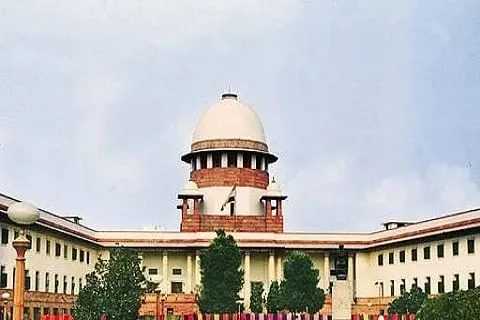The Supreme Court on Tuesday sought the Centre’s reply on pleas seeking framing of guidelines for compensation to victims of wrongful prosecution.
A bench headed by Justice UU Lalit issued notice to the Centre on separate pleas filed by advocate Ashwini Kumar Upadhyay and former MLA Kapil Mishra.
The petitioners cited the January 28, 2021 decision of a division bench of the Allahabad High Court, which declared one Vishnu Tiwari, who was jailed for 20 years, as innocent.
Tiwari was sent behind bars after being booked for rape and atrocities under the SC/ST Act, due to a land dispute. The petitioners in the top court were represented by senior advocates Vijay Hansaria and Arijit Prasad.
The plea filed by Upadhyay contended that there are many startling cases which show the gross abuse of power and authority by the state, which caused absolute “miscarriage of justice”. The plea argued that failure of justice causes irreparable damage to right to life, liberty and dignity of innocent citizens and no relief is given by the courts.
The petitioner said being the custodian of the Constitution, the Supreme Court may use its plenary constitutional power, as an alternative, to frame guidelines for compensation to victims who have faced wrongful prosecution.
Citing the NCRB Annual Statistical Report called Prison Statistics India (PSI), Upadhyay’s plea said according to PSI 2015, there were 4,19,623 prisoners across the country out of which, 67.2 per cent were under trial; substantially higher than the convict population, 1,34,168 (32 per cent).
“A review of the data in PSI shows that across the country as well as in states, under trial prisoners continue to be higher in numbers than the convict population. The States with the highest percentage of undertrials were Meghalaya – 91.4 per cent, Bihar – 82.4 per cent, Manipur – 81.9 per cent, Jammu & Kashmir – 81.5 per cent, Nagaland – 79.6 per cent, Odisha – 78.8 per cent, Jharkhand 77.1 per cent, and Delhi – 76.7 per cent,” added the plea.






